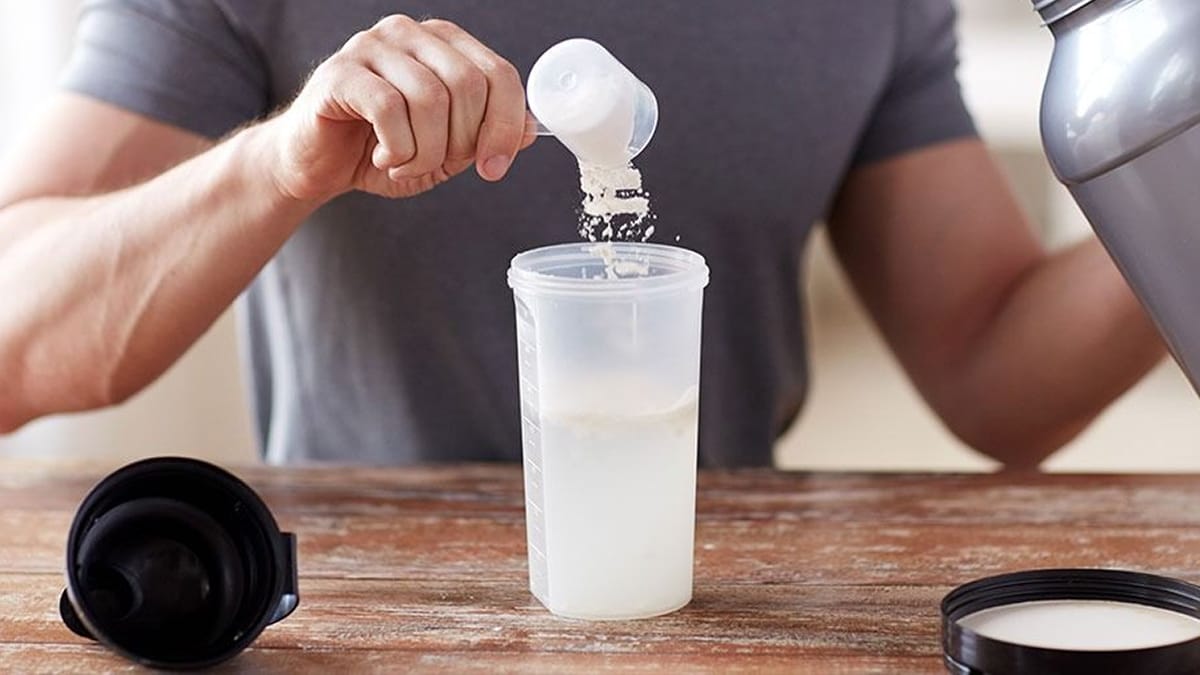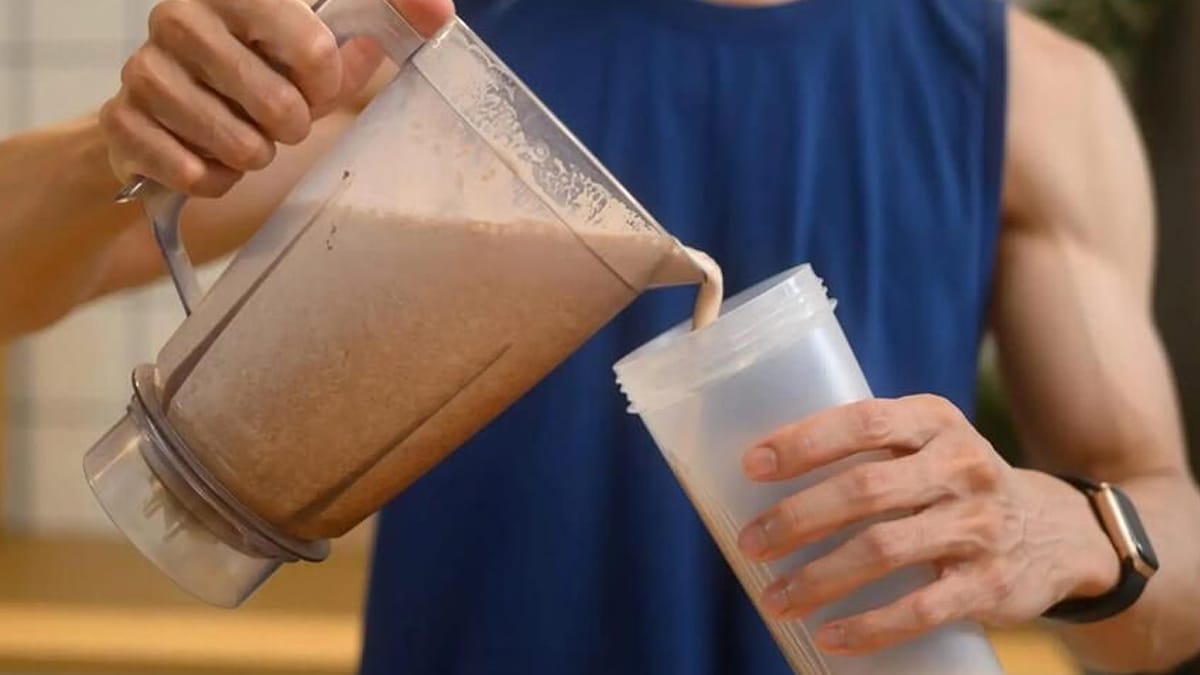Best Vegan Protein Powder for Muscle Building: Expert Picks & Reviews
If you’re serious about building muscle on a vegan diet, choosing the best vegan protein powder for muscle building can be a game changer. The truth is, not all plant-based proteins are created equal. Some powders deliver powerful results backed by science, while others are underdosed, incomplete, and leave you frustrated. The good news? Experts agree that with the right product and strategy, vegan protein powders can match – and sometimes surpass – whey protein when it comes to supporting muscle growth.
This in-depth review explores the top vegan protein powders, the science behind them, and practical tips to maximize gains. By the end, you’ll know exactly which powders to trust, how to use them effectively, and which traps to avoid.

Why Protein Matters for Muscle Growth
Muscle building requires a positive protein balance, meaning you need more protein than your body breaks down. Every intense workout creates microscopic muscle fiber tears, which can only rebuild and grow stronger with enough high-quality amino acids. According to research in the American Journal of Clinical Nutrition, the optimal range for athletes is 1.6–2.2 grams of protein per kilogram of body weight daily.
Vegan athletes often struggle to hit this target with food alone, which is where protein powders become essential. The best vegan protein powders for muscle building deliver concentrated, bioavailable protein without the cholesterol, lactose, or inflammation risks that some people experience with whey.
Expert Criteria for Choosing the Best Vegan Protein Powder
When evaluating vegan protein powders for muscle building, experts look at:
Amino Acid Profile – Must contain all nine essential amino acids, especially leucine.
Protein Content – At least 20–30 grams of protein per scoop.
Digestibility – Easily absorbed, minimal bloating, and no artificial fillers.
Scientific Backing – Proven effectiveness in clinical studies.
Purity – Third-party tested for heavy metals and contaminants.

Top Expert Picks: Best Vegan Protein Powders for Muscle Building
Pea Protein Isolate
Rich in branched-chain amino acids, particularly leucine, pea protein is one of the most effective vegan proteins for triggering muscle protein synthesis. Studies have shown pea protein to perform nearly identical to whey in supporting muscle growth when taken in sufficient doses.
Rice Protein
While slightly lower in lysine, rice protein is highly digestible and, when combined with pea protein, creates a complete amino acid profile. Together, pea and rice protein powders are considered the gold standard for vegan muscle building.
Soy Protein Isolate
Soy has been extensively studied and remains one of the only naturally complete plant proteins. It supports both lean muscle gain and fat loss, making it a versatile choice. Research has also debunked myths about soy lowering testosterone in men.
Hemp Protein
Although lower in protein content per scoop compared to isolates, hemp protein offers omega-3 fatty acids and fiber, which support recovery, hormone balance, and overall health.
Pumpkin Seed Protein
High in magnesium and zinc, pumpkin seed protein contributes to muscle function and recovery. Often used in blends, it’s a great supporting source.
Multi-Source Blends
Premium vegan protein powders now combine 3–5 different sources (pea, rice, hemp, pumpkin, chia) for complete amino acid coverage, improved taste, and maximum absorption. Many also add digestive enzymes and probiotics for gut health and comfort.
How Vegan Protein Powder Compares to Whey
A 2020 study in the Journal of Sports Nutrition found no significant difference in muscle hypertrophy between athletes consuming pea protein isolate and those consuming whey protein, provided the total protein intake was equal. The main differences? Vegan protein is lactose-free, often more sustainable, and easier on sensitive stomachs.
How to Use Vegan Protein Powder for Best Results
Post-Workout – Consume 20–30 grams of vegan protein powder within 30–60 minutes after training to stimulate muscle recovery.
Daily Intake – Add 1 scoop to meals like oatmeal, smoothies, or baked goods to consistently hit your protein target.
Combine with Carbs – Pair protein with carbs post-workout (banana, oats, berries) to boost glycogen replenishment.
Consistency – Results depend on daily adherence. Occasional use won’t deliver muscle growth.
Common Mistakes to Avoid
Relying only on protein shakes instead of whole foods.
Choosing powders with less than 15 grams of protein per serving.
Falling for cheap fillers and artificial additives.
Ignoring leucine content, the critical amino acid for muscle building.
Forgetting total calorie balance – protein alone doesn’t build muscle without enough energy.
The Extra Benefits of Vegan Protein Powders
Supports heart health by lowering cholesterol.
Often fortified with vitamins like B12 and iron.
More eco-friendly and sustainable compared to dairy-based proteins.
Easier digestion for lactose-intolerant individuals.
Reduces inflammation markers compared to some animal proteins.
Real Results: Vegan Athletes Who Built Muscle with Protein Powders
Elite vegan athletes from professional football players to bodybuilders have proven plant protein works. Torre Washington, a well-known vegan bodybuilder, credits pea and rice protein blends for fueling his growth. Similarly, endurance athletes report faster recovery and reduced soreness using plant-based powders consistently.
Frequently Asked Questions
Can vegan protein powder build muscle as effectively as whey?
Yes. Multiple studies show no difference in muscle growth between pea/rice protein and whey when total daily protein intake is adequate.
How much vegan protein powder should I take per day?
Most athletes benefit from 1–2 scoops daily, adjusted to reach their total protein target. For serious training, 25–30 grams post-workout is recommended.
Which vegan protein is best for beginners?
A pea and rice protein blend is the best starting option due to its complete amino acid profile, good taste, and digestibility.
Is soy protein safe?
Yes. Soy protein has been studied extensively and shown to be safe for men and women. It does not lower testosterone levels when consumed in normal amounts.
What are the best vegan protein powders to buy?
Pea and rice protein blend with digestive enzymes
Soy protein isolate with BCAAs
Hemp and pumpkin seed blend with added probiotics
Fermented multi-source vegan protein powder
High-leucine pea protein isolate
Tips and Warnings
Don’t be fooled by cheap labels – check the amino acid profile and serving size.
Always combine protein powders with strength training for best results.
Rotate between different plant sources to maximize nutrient diversity.
Make sure your powder is third-party tested for purity.
Avoid underdosing – aim for 20–30 grams per serving.
Final Thoughts Best Vegan Protein Powder for Muscle Building: Expert Picks & Reviews
The best vegan protein powders for muscle building can match whey protein in effectiveness.
Pea and rice protein blends remain the top choice for most athletes.
Quality matters more than quantity – choose third-party tested, complete powders.
Combine powders with resistance training and balanced nutrition for optimal growth.
Consistency and smart product choice are the ultimate keys to vegan muscle success.
Reference & Additional Reading
Inspired by studies and insights from:
www.health.harvard.edu
www.menshealth.com
www.healthline.com
www.womenshealthmag.com
www.ncbi.nlm.nih.gov
www.webmd.com
www.medlineplus.gov
www.tridenttech.edu
www.burnexia.com

